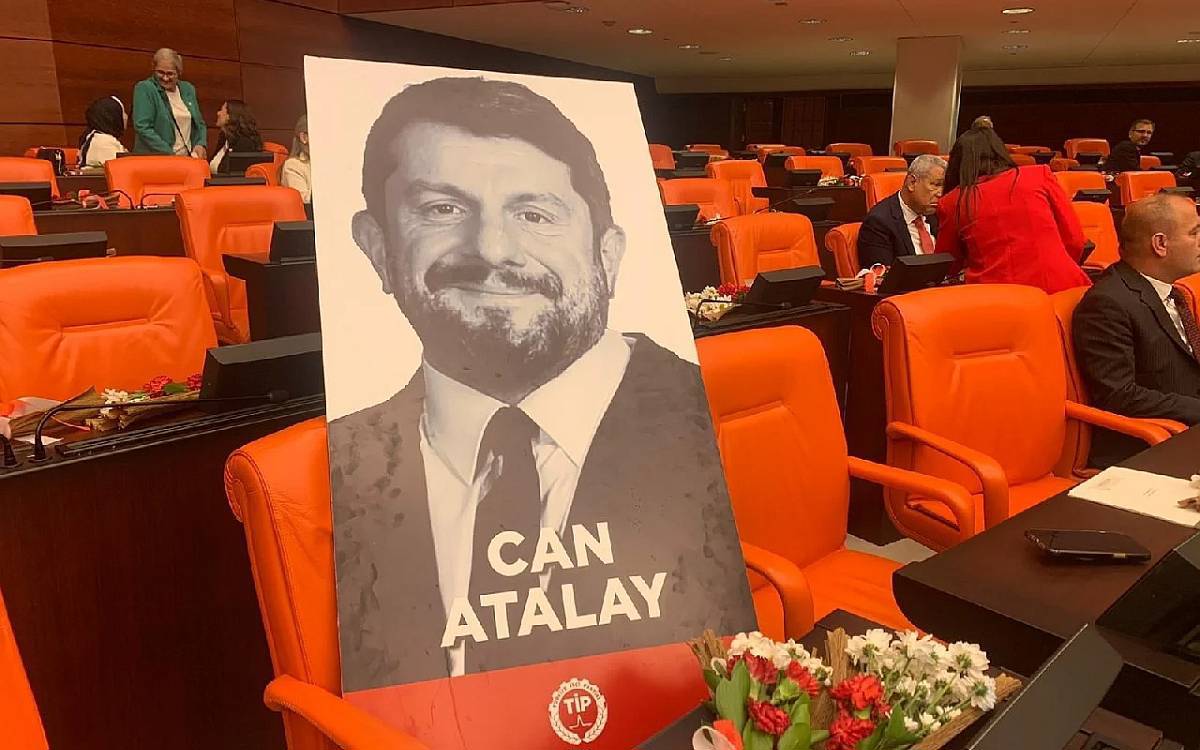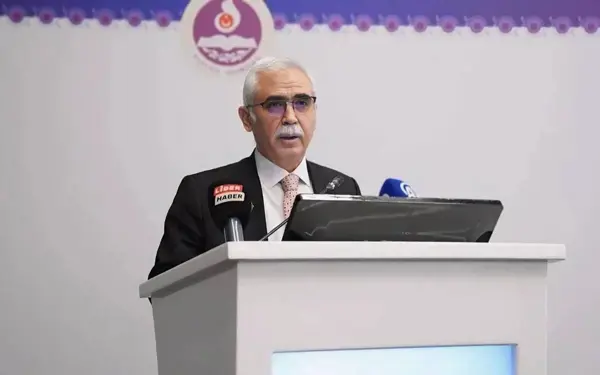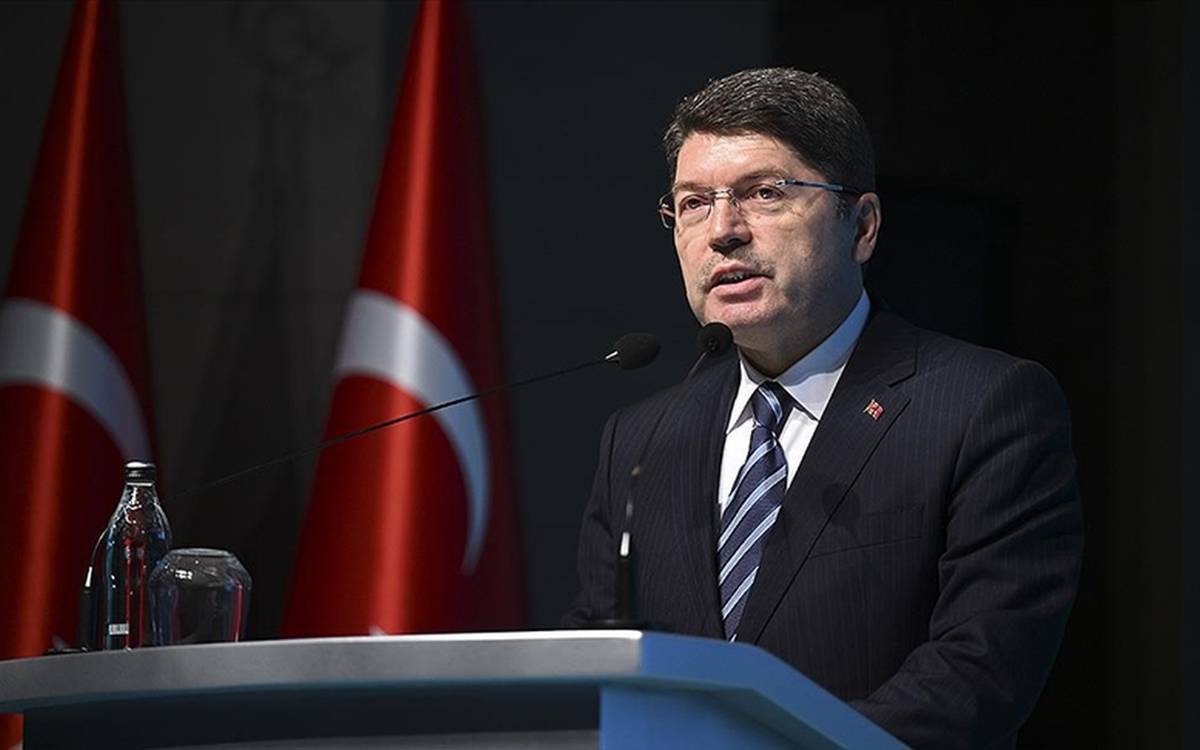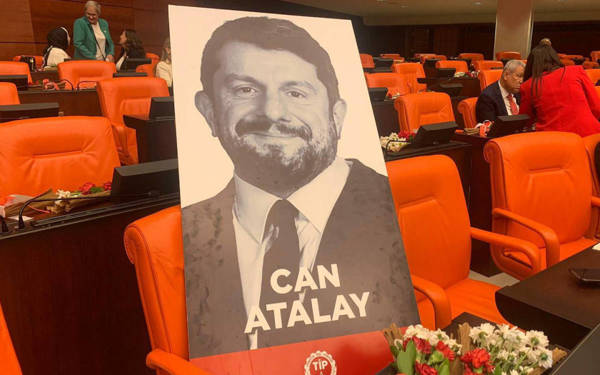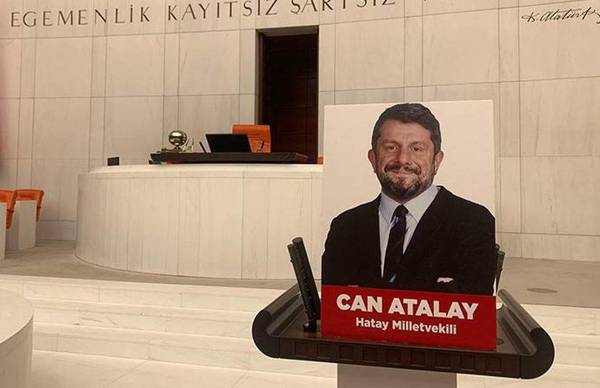The 13th Heavy Penal Court in Istanbul did not release Can Atalay, the Turkey Workers' Party (TİP) MP for Hatay, from prison despite the Constitutional Court's (AYM) decision on a rights violation. The court has instead forwarded the case to the Court of Cassation on Monday evening (October 30).
On October 25, the AYM ruled that Atalay's "right to stand for election" and "personal freedom and security" rights had been violated.
Atalay's release was expected after the AYM's decision. However, for five days, the 13th Heavy Penal Court did not make a decision.
In its ruling issued on October 30, the court stated that "the violation decision of the higher court pertains not to the judgment of the 13th Heavy Penal Court but to the rejection decision of the relevant Criminal Division of the Court of Cassation regarding the release request," and it forwarded the case.
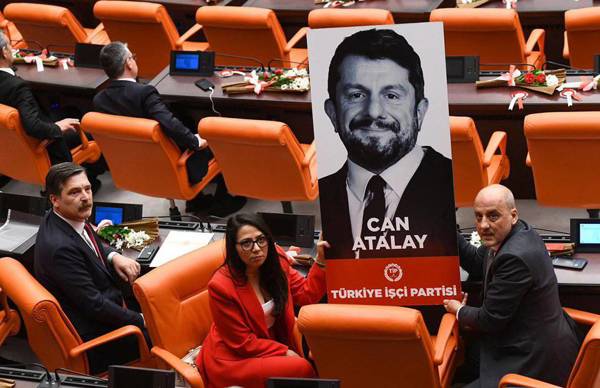
AYM has detailed the violation, the court can only issue a release order, says Atalay's lawyer
"Violation of Article 153 of the Constitution"
Fikret İlkiz, one of Atalay's lawyers and the one who made the application to the AYM, commented on the court's decision to bianet.
He said that the court violated Article 153 of the Constitution, which includes the provision that "AYM decisions are final."
İlkiz emphasized that the 13th Heavy Penal Court "created a second violation" and continued: "Decisions of the Constitutional Court bind everyone and must be applied without fail. The fundamental reason for the Constitutional Court sending a short decision is to enable immediate and prompt implementation.
"However, there is a tendency not to implement the decisions of the Constitutional Court or international courts. Especially politicians react by saying, 'interference in our internal affairs.' This is a very wrong approach. Within the framework of Article 90 of the Constitution, Turkey is a party to international treaties."
"The Constitution is above all norms"
"Individual application route is accepted in our domestic law to resolve issues before resorting to international courts established under international agreements. The Constitutional Court was assigned an important function. It was granted the authority to examine whether there have been violations of fundamental rights and freedoms according to the Constitution and the European Convention on Human Rights.
"The Constitutional Court exercises this authority. Because the Constitutional Court uses this authority, citizens want to resolve their issues in Turkey without going to the European Court of Human Rights.
"For this reason, all judicial authorities should respect Constitutional Court decisions and adhere to the Constitution. Moreover, when we look at it from a supremacy perspective, since the Constitution is above all norms, everyone is obliged to comply."
"Such a practice has never been encountered before."
İlkiz stated that there has been no similar previous experience, and that the process is uncertain:
"The case will go to the Court of Cassation's 3rd Criminal Chamber. We don't know what the Court of Cassation's 3rd Criminal Chamber will say. There is a strange situation because there has never been such an experience. A court does not have the authority to refer the Constitutional Court's decision to another court. It can only refer a decision.
"If there is something that needs to be done in line with the decision, it can state that. But here, by clearly explaining all the details, it is telling the Court of Cassation, 'you do it, you make the decision.' So, this is a strange and unfamiliar method that we have not encountered until now.
"The Court of Cassation could also say, 'I am not authorized,' just as the 13th Heavy Penal Court did. In that case, it will lead to a cacophony of interpretations, as the President of the Constitutional Court mentioned," the lawyer concluded.
What happened?
Atalay was one of the defendants in the Gezi Park trial, a controversial case that accused them of organizing and financing the 2013 anti-government protests that started in İstanbul's Gezi Park and spread across the country.
In April 2022, Atalay was sentenced to 18 years in prison for "attempting to overthrow the government by force and violence" along with seven other defendants.
In the elections in May, Atalay was elected as an MP from Hatay province. However, he was not released from prison despite having parliamentary immunity. His lawyers appealed to the Court of Cassation and the Constitutional Court(AYM), arguing that his right to be elected and his personal liberty were violated. While the Court of Cassation, the country’s top appeals court, upheld his conviction, AYM ruled on October 25 that Atalay's "right to stand for election" and "personal freedom and security" rights had been violated.

REACTIONS FROM FRENCH ACTIVISTS TO THE GEZİ PARK TRIAL DECISION
'In this case, freedom will be won in political arena, not in courtrooms'
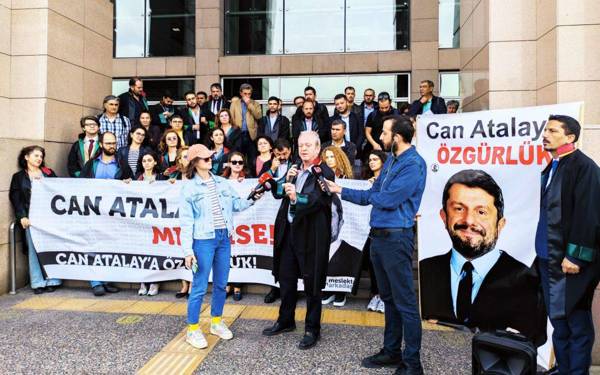
Lawyers demand release order for Can Atalay after supreme court decision
(RT/PE)





